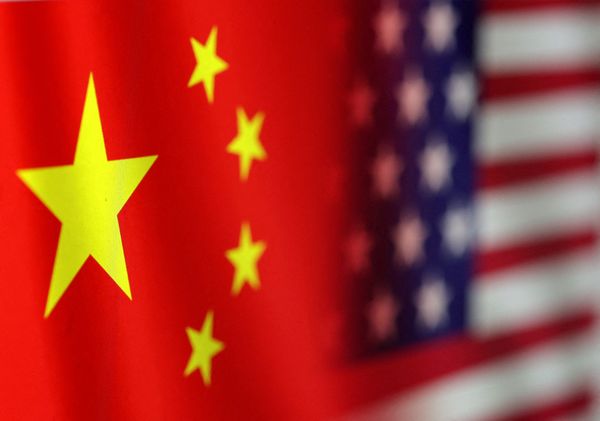KUALA LUMPUR, April 9 — The ongoing United States (US)-China trade war, which erupted in 2018 under President Donald Trump’s 'America First' policy, continues to impact global trade dynamics, with far-reaching consequences for Asean economies, including Malaysia.
With Trump’s return this year, he aims to revive the 'Make America Great Again' agenda, focusing on reshaping global supply chains and dismantling what he views as unfair trade practices.
As tensions escalate, particularly with the recent imposition of a 104 per cent tariff on Chinese goods, experts are weighing the potential long-term economic repercussions for the region.
Former Malaysia University of Science and Technology professor and provost Geoffrey Williams said that since 2018, there has been a noticeable shift in Chinese investment towards Asean countries, with China relocating some of its production to avoid the tariffs imposed by the US.
“However, this shift has not been without challenges. Countries like Vietnam and Cambodia have experienced the brunt of reciprocal US tariffs, further complicating the trade environment in Southeast Asia.
“The relocation of Chinese production is unlikely to remain an attractive option for Asean, as the region continues to face tariff retaliation, especially from the US,” Williams, who is also Business Consultancy Sdn Bhd founder and director, told Bernama.
[caption id="attachment_385118" align="aligncenter" width="1241"] A signboard for the Association of Southeast Asian Nations (Asean) 2025 decorates the environs of Kuala Lumpur, as Malaysia takes over as Asean chair this year, on January 1, 2025. — Picture by BERNAMA[/caption]
A signboard for the Association of Southeast Asian Nations (Asean) 2025 decorates the environs of Kuala Lumpur, as Malaysia takes over as Asean chair this year, on January 1, 2025. — Picture by BERNAMA[/caption]
Impact on Malaysia's manufacturing and export sectors
He cautioned that Malaysia’s economy, particularly its manufacturing and export sectors, could experience both direct and indirect effects from the trade conflict.
While the country's export prices, particularly in palm oil and electronics, remain unaffected in global markets, the situation becomes more nuanced when considering the US market.
“Malaysia does not export large volumes of automotive products to the US. Furthermore, palm oil prices are determined by global markets and not directly by bilateral trade agreements.
“In the case of semiconductors, Malaysia is exempt from US tariffs, which is a positive factor for the country,” Williams said.
However, other Malaysian electronics could face challenges as companies negotiate with supply chain partners to navigate the effects of the tariffs.
He emphasised that while tariffs could pose a problem, they are negotiable through bilateral or Asean-wide agreements.
“The real challenge lies in non-tariff barriers, which have become increasingly significant obstacles to smooth trade,” Williams said.
[caption id="attachment_302428" align="aligncenter" width="1131"] Silhouettes of passerby are seen as they stand in front of an electric monitor displaying Japan's Nikkei share average and world stock indexes outside a brokerage, at Tokyo, Japan, on October 21, 2022. — Picture by REUTERS[/caption]
Silhouettes of passerby are seen as they stand in front of an electric monitor displaying Japan's Nikkei share average and world stock indexes outside a brokerage, at Tokyo, Japan, on October 21, 2022. — Picture by REUTERS[/caption]
Risks of a global recession
As the US-China trade war escalates with the latest tariff hikes, concerns about a potential global recession are growing. However, a global recession is unlikely unless China is the only nation involved in the trade war.
In such a scenario, he said the rest of the world could actually benefit from a negotiated resolution, leading to the removal of trade barriers and a move towards free trade.
“The key to preventing a recession lies in diplomacy and renegotiating trade barriers.
“If the US and China can find common ground, the global economy, including Asean countries like Malaysia, would likely see significant improvements,” said Williams.
It was reported that Malaysia will be despatching its officials to Washington by the end of April to begin a dialogue with the US on the 24 per cent reciprocal tariffs imposed on Malaysia.
Prime Minister Datuk Seri Anwar Ibrahim said this is part of Malaysia’s soft diplomacy of quiet engagement.
“We will be dispatching our officials to Washington to begin the process of dialogue. There may be limited room to revisit the underlying intent, but there is still scope for adjusting the policy’s implementation,” he said.
Williams noted that as the trade war drags on, Asean economies, including Malaysia, will need to remain agile, focusing on diversifying trade partners and strengthening regional economic ties.
“While the US-China dispute continues to pose challenges, Malaysia’s economic resilience and ongoing negotiations could help mitigate the impact of heightened tariffs on key industries,” he said.
In the long term, the global trade landscape may shift significantly, but with a balanced approach, Malaysia and its Asean counterparts could position themselves to navigate these turbulent times with relative stability.
— Bernama




